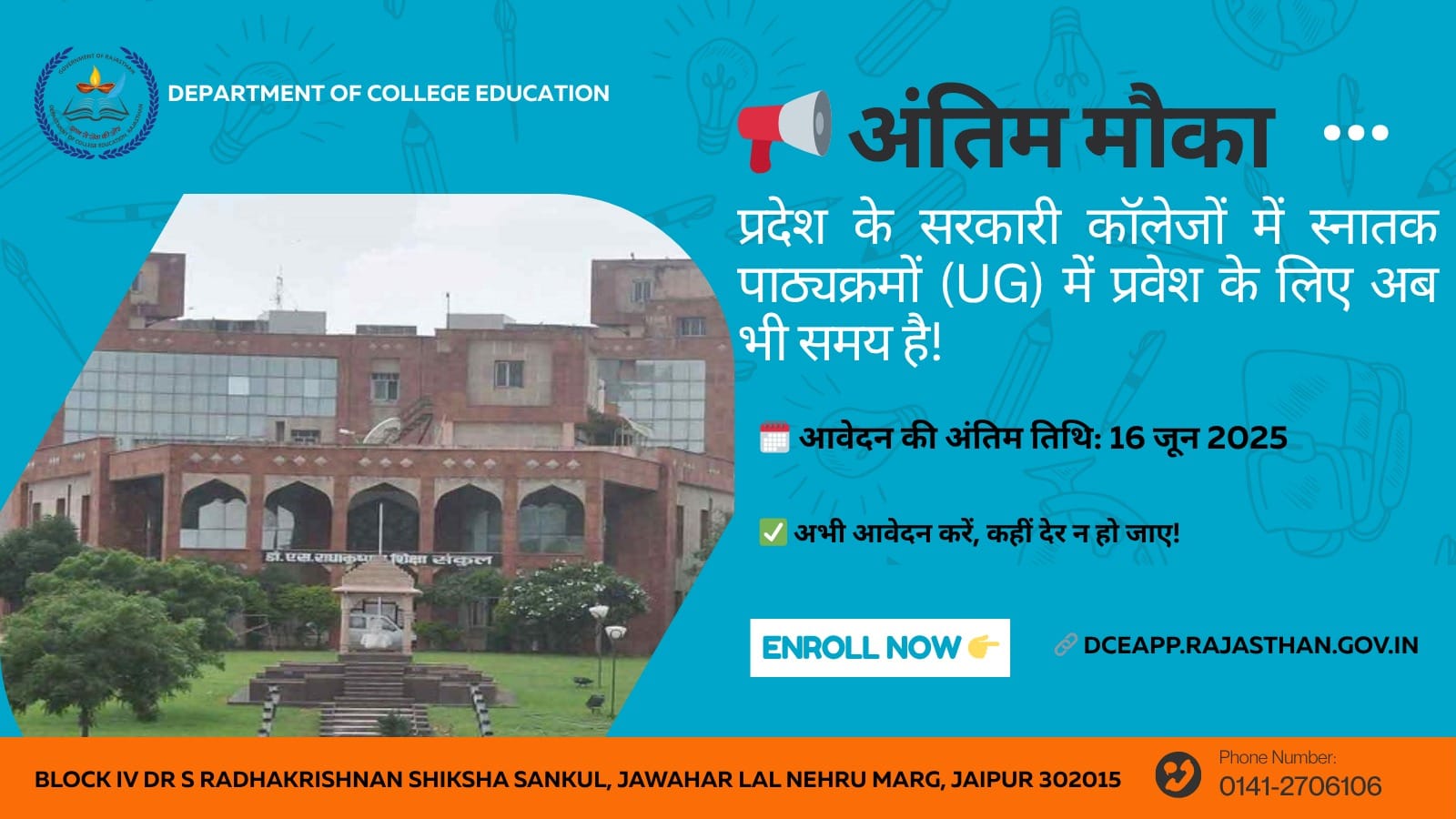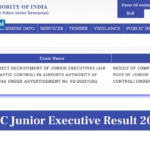The landscape of higher education in Rajasthan has undergone a significant transformation in recent decades. At the heart of this evolution is the Department of College Education (DCE), Rajasthan, which plays a pivotal role in shaping the academic future of thousands of students across the state. Whether it’s overseeing government colleges, facilitating admissions, implementing policy reforms, or improving infrastructure, DCE Rajasthan has been instrumental in making quality higher education accessible to all.
In this blog, we will explore the various dimensions of DCE Rajasthan—its history, responsibilities, admission process, initiatives, and challenges—as it continues to serve as a cornerstone of Rajasthan’s education system.
🏛️ A Brief History
The Department of College Education, Rajasthan was established in 1958 with the aim to manage and regulate college-level education in the state. At the time of its inception, Rajasthan had only 40 colleges, including government, aided, and private institutions. Today, the department supervises:
- Over 290 government colleges
- More than 1600 private unaided colleges
- 900+ B.Ed. and teacher training institutions
Over the years, DCE Rajasthan has grown from a regulatory body to a dynamic institution committed to the expansion, standardization, and modernization of college education in Rajasthan.
🏢 Organizational Structure
DCE Rajasthan operates under the Department of Higher Education, Government of Rajasthan, and is headquartered in Jaipur. The structure includes:
- Commissioner: The head of the department
- Additional Directors: For zones (Jaipur, Jodhpur, etc.)
- Joint/Deputy Directors: Oversee specific departments like academics, finance, and administration
- Principals and Faculty: Appointed at the college level under DCE supervision
This decentralized structure helps DCE manage a vast network of institutions spread across rural and urban regions effectively.
📚 Academic Responsibilities
DCE Rajasthan plays a vital role in maintaining academic consistency and quality across all affiliated colleges. Its major academic responsibilities include:
- Curriculum Implementation: Works in coordination with state universities to implement the prescribed syllabus.
- Academic Monitoring: Regular assessments of academic performance and attendance in colleges.
- Faculty Recruitment & Transfers: Based on merit and state eligibility guidelines.
- NSS/NCC Implementation: Promotes holistic development among students.
- Research Promotion: Encourages seminars, workshops, and paper presentations.
📝 DCE Online Admission Process (2025)
In an effort to bring transparency and convenience to higher education admissions, DCE Rajasthan introduced an online admission system for undergraduate and postgraduate courses in all government colleges. The 2025-26 UG admission cycle started in June 2025 via the official website: www.dceapp.rajasthan.gov.in
✅ Steps for Admission:
- Online Registration
Students must create a profile and fill in personal, academic, and preference details. - Document Upload
Scanned copies of mark sheets, photo ID, and category certificates are required. - Merit-Based Allotment
Admission is granted based on class 12 marks, with no entrance exam. - Fee Payment
Fees can be paid online, after which admission is confirmed. - Counselling Rounds
Multiple rounds are held to fill vacant seats in government colleges.
This system has streamlined admissions and drastically reduced middlemen and offline delays.
🎯 Flagship Initiatives by DCE Rajasthan
1. Digital Classrooms & Smart Colleges
DCE is modernizing classrooms with smart boards, projectors, and online learning tools to enhance student engagement.
2. Girls’ Education Promotion
Special scholarships and hostel facilities are provided to female students, especially from SC/ST and minority backgrounds, under schemes like Kanya Shiksha Protsahan Yojana.
3. Research & Innovation Cells
Several government colleges now have dedicated cells to support undergraduate research and innovation.
4. Internship and Skill Development
Tie-ups with organizations and private firms to provide students with internship opportunities and industry exposure.
5. Green Campus Drive
Efforts to create sustainable campuses with solar panels, water harvesting, and plantation programs.
🧑🎓 Student Support Services
- Scholarships: DCE coordinates with the Social Justice and Minority Welfare departments to provide need-based and merit scholarships.
- Counselling: Academic and psychological counselling is available in many colleges.
- Grievance Redressal: Online portals help students file complaints or report academic issues.
- Placement Cells: Though still in early phases, several government colleges now assist students with career guidance and job opportunities.
📊 Impact on Higher Education in Rajasthan
Thanks to the proactive policies of DCE, Rajasthan has seen:
- A 40% increase in college enrolment in the past decade
- Improved female literacy and participation in higher education
- Expansion of colleges in rural and tribal belts
- Enhanced digital infrastructure, especially after COVID-19
🔍 Challenges Faced by DCE Rajasthan
Despite its many successes, DCE also faces some critical challenges:
1. Faculty Shortage
Several colleges, particularly in remote areas, face a shortage of full-time faculty and rely on guest lecturers.
2. Infrastructure Gaps
Not all colleges have access to laboratories, libraries, or tech-enabled classrooms.
3. Limited Placements
Placement assistance is still underdeveloped in many government colleges compared to private institutions.
4. Internet & Tech Accessibility
Digital divide persists in tribal and interior regions, limiting the reach of online education.
🏗️ Future Plans & Vision
To address these challenges and take college education to the next level, DCE Rajasthan is working on:
- Mission Higher Education 2030: A roadmap to make every district have at least one model government college.
- Faculty Empowerment Program: Training programs to enhance teaching quality.
- NEP 2020 Integration: Multidisciplinary learning, credit transfer, and skill-based modules to be gradually introduced.
- PPP Models: Encouraging public-private partnerships to improve infrastructure and student employability.
📝 Final Thoughts
DCE Rajasthan stands at the forefront of higher education reform in the state. Through its online systems, inclusive policies, and forward-looking approach, it has already changed the academic lives of lakhs of students across Rajasthan.
In a country where access to education is still a barrier for many, initiatives like those by DCE Rajasthan demonstrate how digital governance, inclusive planning, and policy innovation can democratize higher education.
For students looking to pursue higher studies in Rajasthan, DCE is not just a portal for admission—it’s a gateway to opportunity, empowerment, and transformation.










